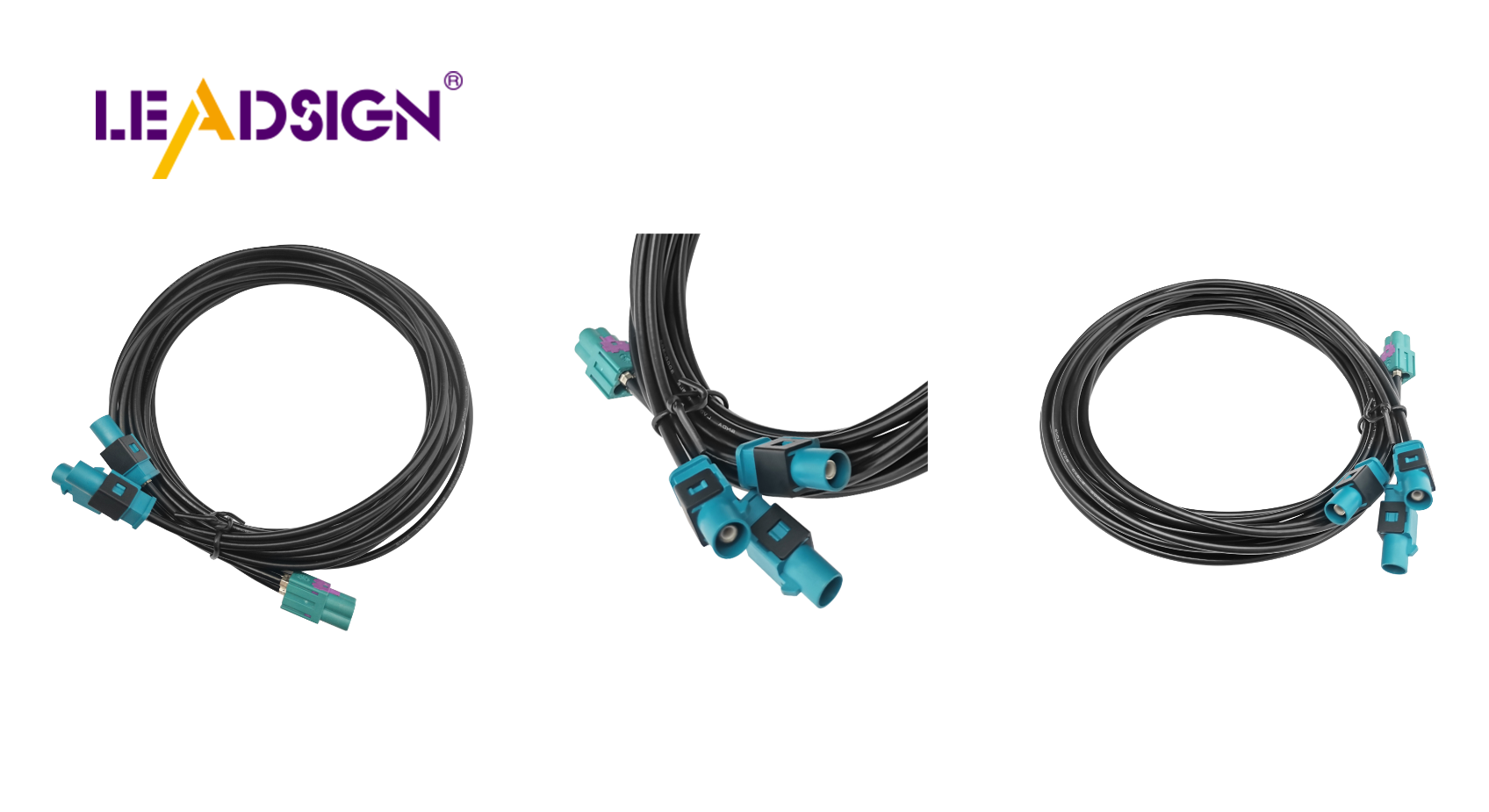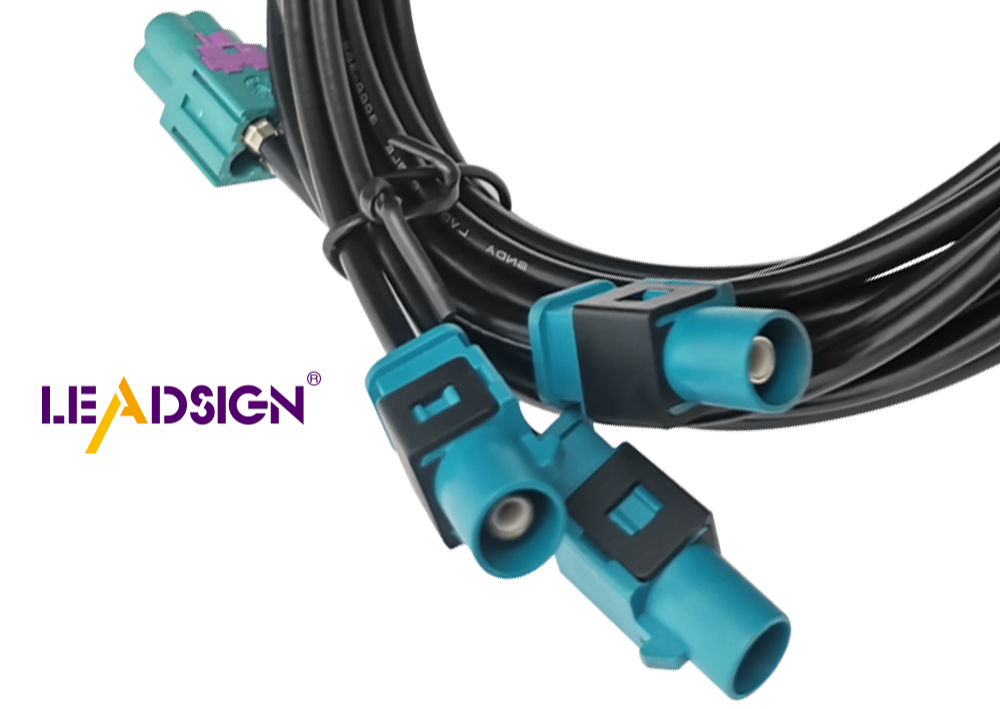How to Identify Automotive Electrical Connectors Types for Replacement

Finding the right automotive electrical connectors types is crucial for maintaining your vehicle. These connectors may need replacement due to wear and tear, overheating, or breakage, which can lead to frequent failures, particularly in high temperatures. Identifying the correct connector type can be challenging. Consider factors such as the number of pins, the shape of the connector, and any brand markings. Having this information at hand will enable you to replace them effectively and prevent electrical issues.
Understanding Automotive Electrical Connectors Types

Knowing about car electrical connectors is important for fixing cars. These connectors help car parts work well by making strong connections. Let's look at the main parts and common types of these connectors.
Basic Parts of Electrical Connectors
Electrical connectors have key parts that make a safe connection.
Pins and Sockets
Pins and sockets are the main parts. Pins are metal pieces that go into sockets, which hold them. This lets electricity move in the car. Keep pins and sockets clean to avoid problems.
Housing and Insulation
The housing covers pins and sockets, protecting them from things like water or dust. Insulation stops electrical shorts by keeping parts apart. Check for cracks in the housing that might cause issues.
Common Car Electrical Connectors Types
Cars use different connectors for specific jobs.
Blade Connectors
Blade connectors are flat and slide into slots. They are used where quick disconnects are needed, like lights. You can spot them by their flat shape.
Bullet Connectors
Bullet connectors are round and fit one end into another. They’re used often because they’re easy to use securely. Make sure ends match when replacing them.
Multi-pin Connectors
Multi-pin connectors have many pins in one case, allowing multiple connections at once. They're used in complex systems like engines or radios. Count pins to ensure they fit your car’s system.
Knowing these parts helps you pick the right connector type for replacement, keeping your car's systems safe and working well.
Steps to Find Electrical Connectors
Finding the right car connectors is important. It helps your car work well. Follow these steps to find the connectors you need and avoid connectivity problems.
Look Closely at Connectors
First, look closely at the connector. This helps you learn more about it.
Check for Maker's Marks
See if there are any maker's marks on the connector. These marks can have numbers or logos. They help you know what type of connector it is. Makers use these to show their products, making it easier for you to find a match.
Notice Connector Shape and Size
Look at how the connector looks and its size. Different connectors have different shapes and sizes. For example, blade ones are flat, and bullet ones are round. By seeing these traits, you can guess what type of connector it might be.
Use Books and Online Guides
After looking closely, use books and online guides to learn more.
Online Help
The internet has lots of info about car connectors. Websites let you search by shape, size, or maker's marks. Use them to check what you saw with what they say online.
Printed Books
Printed books like repair guides can help too. They often have pictures and details about connectors in certain cars. Look at these books to make sure you've got the right one.
More Ways to Identify Connectors
If looking doesn't give enough info, try other ways, including troubleshooting tips.
Test with Multimeters
A multimeter can test how a connector works with electricity. Measure things like voltage or resistance for more info about it working right.
Ask Car Experts
If you're unsure, ask car experts for help. They know a lot about car connectors and can tell you which one fits best.
By doing these steps, you'll find the right car connectors to keep your vehicle running smoothly.
Things to Think About for Replacement
When changing car electrical connectors, think about some important things. These help keep your car working well and safe.
Matching with Car Systems
Make sure the new connector fits your car's systems. Check two main things:
Voltage and Current Limits
Each connector can handle certain voltage and current. This shows how much electricity it can safely take. Using the wrong one can cause overheating or breaking. For high-voltage jobs, use designs with short pins that pull out before power pins. This stops damage when unplugging.
Protection from Environment
Connectors should handle different weather, like heat, wetness, and dust. Pick ones with good covers to protect them. This keeps them working well for a long time.
Getting New Connectors
Finding where to buy connectors is important. Think about these choices:
OEM vs. Aftermarket Choices
OEM connectors fit your car model perfectly but cost more. Aftermarket ones are cheaper but might not be as good. Weigh the good and bad of each based on what you need and can spend.
Buying from Good Sellers
Always get connectors from trusted sellers. They sell quality parts and give correct info about them. This helps avoid fake or bad parts. Good sellers also help you choose wisely.
By thinking about these points, you pick the right car electrical connectors for replacement, keeping your car's systems safe and running smoothly.
Finding and changing car electrical connectors needs some steps. First, look at the connector's shape and size. Then, use online guides or books to check what you found. Last, make sure it fits your car before buying a new one.
To replace connectors well:
Check the connector type twice.
Buy from trusted sellers.
Try the new connector before putting it in fully.
"David was awesome. He checked everything and made sure this special connector would work for me."
If you're not sure, ask an expert for help.
See Also
Exploring Ford Fakra Connectors: A Comprehensive Overview
Understanding HSD Connectors in Automotive Sector
Significance of FAKRA Connectors in Auto Technology

